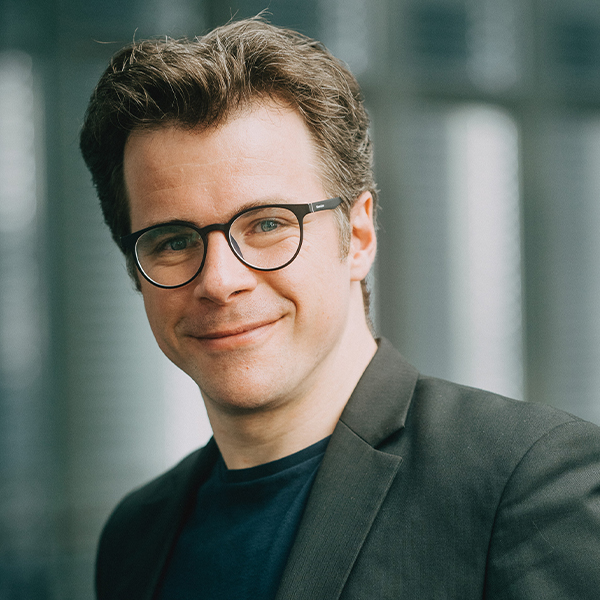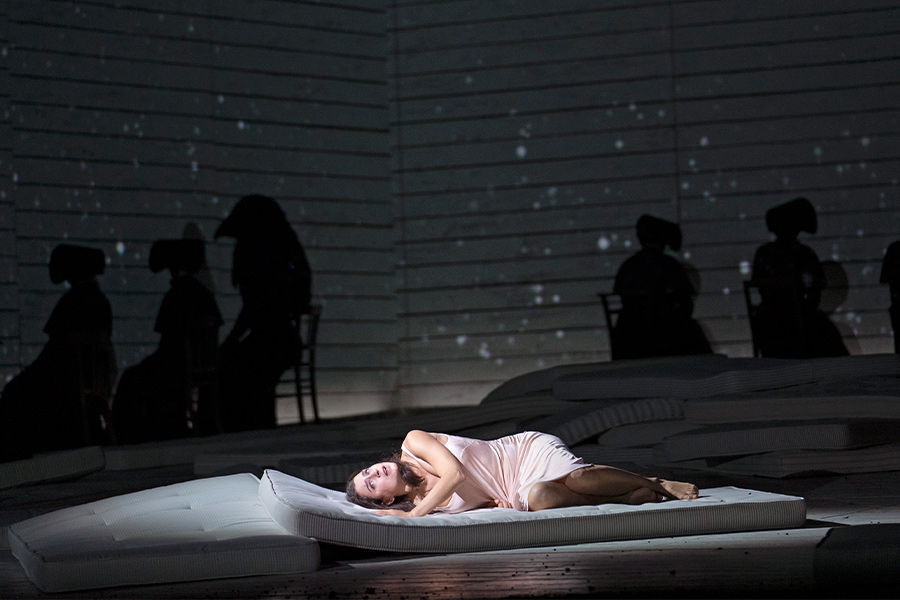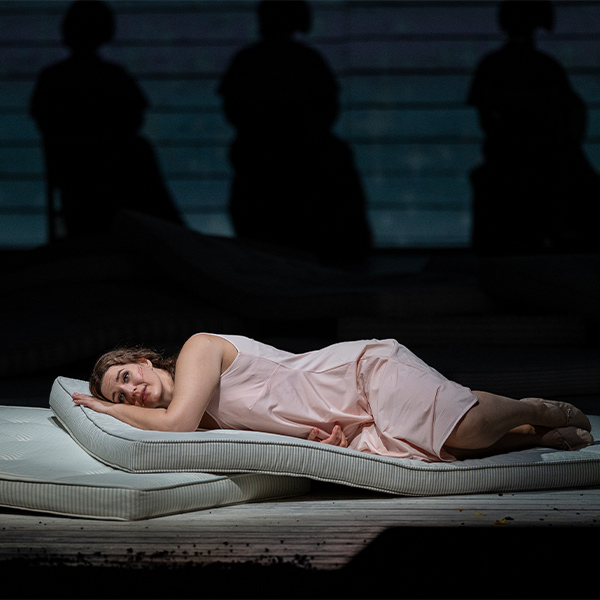November 01, 2023
Q&A with Jakub Hrůša
A conversation with Jakub Hrůša on the challenges and enduring impact of his countryman’s opera.
Janáček is of course a fellow Czech — does that similarity give you particular insight into his work?
It’s true that because of where I was born I’m often asked to do Janáček’s work. But if I may speak personally, it’s very close to my heart and background — an essential point of my knowledge and experience. Jenůfa in particular is, to this day, a piece which among all operas of all times has one of the deepest and most powerful emotional impacts on me. In other words, I’m always moved and in tears.

It can be a rather shattering piece.
The story is not easy to bear. I’ve spoken to singers who have found it very uneasy or difficult to do — especially parents. The problem with Janáček is that he goes inside your heart and doesn’t give you distance from what you see and hear. But the music helps us with a catharsis, as in an old Greek drama. Really, the outcome of this terrible, cruel story is that you feel emotionally purified. If someone has gone through a very difficult stage of life and sheds many tears, then at the end of the process, there’s a better feeling. This is a very strong piece of drama which guides you through very deep and very personal emotions.
Where do you place this opera among the composer’s work — and among his contemporaries?
Among Janáček's works, it’s definitely the most accessible — a masterpiece, but one that hews closely to Romantic traditions. Opera lovers who are very much at home in the idiom of the 19th century, in Verdi and in Wagner, in Gounod or Massenet — they will still find a very easy connection to Jenůfa. I’ve heard that the piece hasn’t been done for some time at Lyric, and hopefully it will be a very beautiful discovery for the audience.
You’re saying that Jenůfa is more accessible than The Cunning Little Vixen?
Musically, for sure — much more. The Cunning Little Vixen is considered a fairy tale with animals and interesting stories, accessible to children and so on. But in terms of musical language, in terms of soundscape, it makes you a little uneasy. And also it’s extremely difficult to stage.

What else draws you to Jenůfa?
Jenůfa is the first outburst of Janáček’s originality and his creative power. I first saw it as a teenager — and it seemed to me greater than any other piece in the theater. But who wouldn’t feel that way? Once you are willing to be drawn into the drama, it’s inevitable to be touched. Janáček will not let you leave the theater indifferent. Sometimes his reputation is that he’s too harsh and somehow too radical and not easy to listen to. But very often it’s because it hasn’t been managed well. It’s a challenging piece of music, always. You have to take care to really play it well. If you do, it works.
You’re very accomplished in both operatic and orchestral repertoire. Do you approach them in any different way?
Yes and no. There are different genres, but of course, music is music. So the essence of my work as conductor is the same. On a profound level, though, opera requires more teamwork. And I have always liked it because I think with more people, points of view, and art forms involved — once they achieve true harmony and collaboration — the effect can be even stronger. I realized quite early on that opera as a genre is kind of a climax or the peak of what a musician can do. But I also realized that very often it gets compromised in quality. You cannot presume that every single project you do will be exactly according to your wishes — so opera for me is the genre to try to do as best as possible in the hope that — at least several times in your life — it will be really fantastic.
Jakub Hrůša makes his Lyric debut conducting Janáček’s Jenůfa. Born in the Czech Republic, Hrůša is Chief Conductor of the Bamberg Symphony, Principal Guest Conductor of the Czech Philharmonic, and Principal Guest Conductor of the Orchestra dell’Accademia Nazionale di Santa Cecilia. Formerly Principal Guest Conductor of the Philharmonia Orchestra, in the 2025/26 season he will become the new Music Director of the Royal Opera, Covent Garden, London. He is a frequent guest with many of the world’s greatest orchestras — including the Vienna Philharmonic, Berlin Philharmonic, The Cleveland Orchestra, New York Philharmonic, Chicago Symphony Orchestra, and more — and has led productions for the Salzburg Festival, Vienna State Opera and Zurich Opera, Royal Opera House, Covent Garden, and Opéra national de Paris. He has also been a regular guest with Glyndebourne Festival where he served as Music Director of Glyndebourne on Tour for three years.
Most recently, he received the Opus Klassik Conductor of the Year award and the ICMA prize for Symphonic Music for his recording of Bruckner’s Symphony No. 4, and the Preis der Deutschen Schallplattenkritik for his recording of Mahler’s Symphony No. 4, both with Bamberg Symphony. His recording of the Dvořák Violin Concerto with the Bavarian Radio Symphony and Augustin Hadelich was nominated for a Grammy Award.

